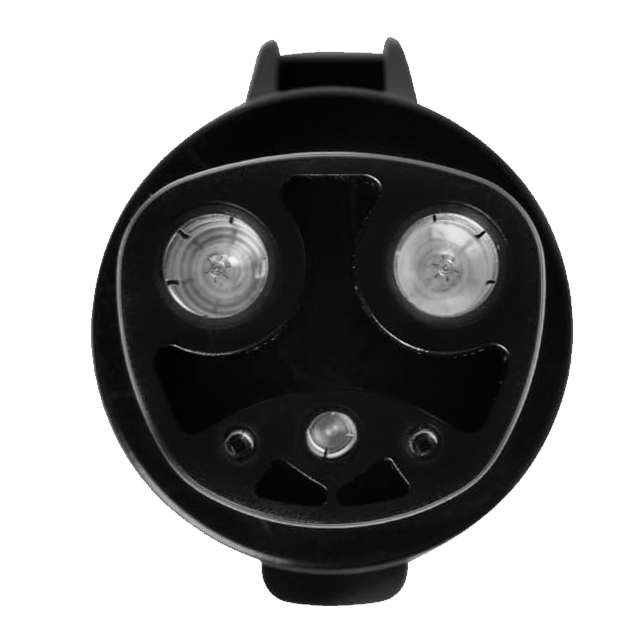Not sure about choosing a charger? Try our revamped Charger Finder!
Try our revamped Charger Finder!
- For Installations
- All our chargers come with a 1 year warranty
- Free Shipping
Toyota has been a market leader in EV charging thanks to its early entry in electric vehicles and plug in hybrid vehicles.
The Toyota EV chargers are used for a range current and former electric vehicle models. Toyota targets the entry, mid size and more luxury end of the market. Its current range of vehicles include the Toyota bZ4x, an all-electric vehicle, the Toyota Prius Prime and Toyota Rav4 Prime. The price points of the Toyota vehicles are affordable, offer long driving ranges and lower overall driving costs. We speak to many Toyota owners who have driven a vehicle fresh off the lot or purchased a used Toyota and are looking for a level 1 or level 2 EV charger for their Toyota.
Generally, the line-up of battery sizes are well suited to level 2 EV chargers. This will provide the fastest EV charger or if you own a plug-in hybrid vehicle, it will give futureproofing so if you update to a pure EV in the future, you will not need to upgrade your EV charger.
| Vehicle Type | Battery Size | DC Commercial Charging compatibility | Average Cost per Charge | Level 2 charging |
| Toyota bZ4x pure EV | ~70 kWH | Yes | $35-$38 | Yes |
| Toyota Plug-in Hybrids | 9 kWh – 18 kWh | No | N/A since no DC commercial charging | Yes |
The tabulated summary includes the charging costs and charging times using different EV plug types, highlighting how the duration required to charge an electric vehicle can fluctuate based on various factors. A 5-15 plug type is a regular, residential 3 pin plug type. The table below is all for the plug-in hybrid range.
Charging at home can be done using a domestic socket, which offers convenience but is less efficient and slower compared to dedicated home charging solutions.
| EV Plug Type | Battery Size (kWh) | Charge Power per Hour | EV Charge Time |
| Level 1 – 5-15 (regular 3 pin) 120 volts | 9 to 18 kWh | 1.9 KW/hour @ 12 amps | 9 kWh (Prius) – 4 hours 18 kWh (Rav4) – 9 hours |
| Level 2 – 14-30 (4 pin electric dryer type) 240 volts | 9 to 18 kWh | 5.5 KW/hour @ 24 amps | 9 kWh (Prius) – 2 ¾ hours 18 kWh (Rav4) – 3 ¼ hours |
| Level – 14-50 (4 pin EV Plug) 240 volts | 9 to 18 kWh | 9.6 KW/hour @ 40 amps | 9 kWh (Prius) – 2 ¾ hours 18 kWh (Rav4) – 2 ½ hours |
The table above includes the fastest level 2 EV charging for a Toyota, which is a NEMA 14-50 level EVSE / EV charger.
Currently, the Toyota range uses the historical North America charging standard, which is known as the Type 1 J1772 charging standard. This is the name of the present EV charger head that connects into the charging port of the Toyota. The charging port is located at the rear of the vehicles, so EV chargers are located. Depending on the vehicle, the charge rate or charge speed, which is how fast the battery can “accept” power from the EV charger, will vary depending on various conditions such as battery temperature, driving habits, and environmental factors. Plug-in hybrid vehicles have a slower acceptance rate.
Toyota U.S. has announced that it will switch from the J1772 to NACS in the future. This shift will start in mid 2025, so if you buy a vehicle and the charging port looks like the below, you will need a NACS EV charger. NACS EV chargers will, over time, replace J1772 EV chargers
NACS Connector/Charger
95%+ of customers we speak to prefer to charge at home, rather than going to commercial DC or level 2 EV charging stations that are located in inconvenient places or locations not on the way to or at their destination. Installing a home charger can provide faster charging times and the convenience of charging overnight. El Monde is creating a network of reservable, destination and residential level 2 EV chargers allowing you to charge, pay and reserve at more convenient destination or overnight locations.
The reason for level 2 EV charging, especially at residential destination locations is cost. The cost difference is significant. To charge a Toyota bZ4 at home overnight will cost around $7-10 for a full charge from an empty battery (71 kWh battery * 0.10 cents per kilowatt).
Currently for commercial DC (100-350 kWh charging generally) charging, only the Toyota bZ4x is compatible. The Toyota plug-in hybrid vehicles will work well at level and level 2 commercial charging locations. Be sure to check on your app that the charging station is a J1772 EV charger and if you bought a NACS. In your app, look for commercial CCS 1 EV chargers. You can also charge at any level 2 commercial charging location such as Gyms, Hotels, MedSpas and Grocery Stores where they are generally found. NEMA 14-50 plug type EV chargers are popular since they tend to now be available in newer homes, at other peoples homes that own EVs, campgrounds and sometimes other recreational areas. An EVgo account is necessary to access some public charging networks, but it does not need to be set up separately before using the associated mobile app.
At Home At Work
The costs of charging a Toyota will vary. A lot depends on your State, local electricity provided, if you are charging at home or a commercial location and time of day. One strong recommendation, especially for a pure electric vehicle, is to charge overnight to enjoy super-off peak hours.
Additionally, the cost differences can vary significantly depending on the model year of the Toyota vehicle. For instance, newer model years like the 2023 and 2024 Toyota bZ4X may have different charging efficiencies and promotional offers.
The tables use U.S. current averages for residential electricity supply of 20 ¢/kWh. Below assumes a 250-mile EV driving range (typical of for example the bZ4x) and a 70 kWh battery size.
| Place | Average Cost | Cost/Mile |
| Home (empty to full)* | $14 | $0.06¢ / mile |
| Commercial Chargers ** | $35 | $0.14¢ / mile |
* Assumes 20 ¢/kWh average U.S. tariff. Residential tariffs vary by State
** Assumes 50 ¢/kWh tariff for most Level 2 (AC) or Level 3 (DC) network EV chargers
Toyota has been a market leader in EV charging thanks to its early entry in electric vehicles and plug in hybrid vehicles.
The Toyota EV chargers are used for a range current and former electric vehicle models. Toyota targets the entry, mid size and more luxury end of the market. Its current range of vehicles include the Toyota bZ4x, an all-electric vehicle, the Toyota Prius Prime and Toyota Rav4 Prime. The price points of the Toyota vehicles are affordable, offer long driving ranges and lower overall driving costs. We speak to many Toyota owners who have driven a vehicle fresh off the lot or purchased a used Toyota and are looking for a level 1 or level 2 EV charger for their Toyota.
Generally, the line-up of battery sizes are well suited to level 2 EV chargers. This will provide the fastest EV charger or if you own a plug-in hybrid vehicle, it will give futureproofing so if you update to a pure EV in the future, you will not need to upgrade your EV charger.
| Vehicle Type |
|---|
| Toyota bZ4x pure EV |
| Toyota Plug-in Hybrids |
| Battery Size |
|---|
| ~70 kWH |
| 9 kWh - 18 kWh |
| DC Commercial Charging compatibility |
|---|
| Yes |
| No |
| Average Cost per Charge |
|---|
| $35-$38 |
| N/A since no DC commercial charging |
| Level 2 charging |
|---|
| Yes |
| Yes |
The Prius has the smallest battery and the Toyota bZ4x the largest lithium ion battery.
The tabulated summary includes the charging costs and charging times using different EV plug types, highlighting how the duration required to charge an electric vehicle can fluctuate based on various factors. A 5-15 plug type is a regular, residential 3 pin plug type. The table below is all for the plug-in hybrid range.
Charging at home can be done using a domestic socket, which offers convenience but is less efficient and slower compared to dedicated home charging solutions.
| EV Plug Type |
|---|
Level 1 – 5-15 (regular 3 pin) 120 volts |
Level 2 – 14-30 (4 pin electric dryer type) 240 volts |
Level – 14-50 (4 pin EV Plug) 240 volts |
| Battery Size (kWh) |
|---|
9 to 18 kWh |
9 to 18 kWh |
9 to 18 kWh |
| Charge Power per Hour |
|---|
1.9 KW/hour @ 12 amps |
5.5 KW/hour @ 24 amps |
9.6 KW/hour @ 40 amps |
| EV Charge Time |
|---|
9 kWh (Prius) – 4 hours 18 kWh (Rav4) – 9 hours |
9 kWh (Prius) – 2 ¾ hours 18 kWh (Rav4) – 3 ¼ hours |
9 kWh (Prius) – 2 ¾ hours 18 kWh (Rav4) – 2 ½ hours |
The table above includes the fastest level 2 EV charging for a Toyota, which is a NEMA 14-50 level EVSE / EV charger.
Currently, the Toyota range uses the historical North America charging standard, which is known as the Type 1 J1772 charging standard. This is the name of the present EV charger head that connects into the charging port of the Toyota. The charging port is located at the rear of the vehicles, so EV chargers are located. Depending on the vehicle, the charge rate or charge speed, which is how fast the battery can “accept” power from the EV charger, will vary depending on various conditions such as battery temperature, driving habits, and environmental factors. Plug-in hybrid vehicles have a slower acceptance rate.
Toyota U.S. has announced that it will switch from the J1772 to NACS in the future. This shift will start in mid 2025, so if you buy a vehicle and the charging port looks like the below, you will need a NACS EV charger. NACS EV chargers will, over time, replace J1772 EV chargers

95%+ of customers we speak to prefer to charge at home, rather than going to commercial DC or level 2 EV charging stations that are located in inconvenient places or locations not on the way to or at their destination. Installing a home charger can provide faster charging times and the convenience of charging overnight. El Monde is creating a network of reservable, destination and residential level 2 EV chargers allowing you to charge, pay and reserve at more convenient destination or overnight locations.
The reason for level 2 EV charging, especially at residential destination locations is cost. The cost difference is significant. To charge a Toyota bZ4 at home overnight will cost around $7-10 for a full charge from an empty battery (71 kWh battery * 0.10 cents per kilowatt).
Currently for commercial DC (100-350 kWh charging generally) charging, only the Toyota bZ4x is compatible. The Toyota plug-in hybrid vehicles will work well at level and level 2 commercial charging locations. Be sure to check on your app that the charging station is a J1772 EV charger and if you bought a NACS. In your app, look for commercial CCS 1 EV chargers. You can also charge at any level 2 commercial charging location such as Gyms, Hotels, MedSpas and Grocery Stores where they are generally found. NEMA 14-50 plug type EV chargers are popular since they tend to now be available in newer homes, at other peoples homes that own EVs, campgrounds and sometimes other recreational areas. An EVgo account is necessary to access some public charging networks, but it does not need to be set up separately before using the associated mobile app.


The costs of charging a Toyota will vary. A lot depends on your State, local electricity provided, if you are charging at home or a commercial location and time of day. One strong recommendation, especially for a pure electric vehicle, is to charge overnight to enjoy super-off peak hours.
Additionally, the cost differences can vary significantly depending on the model year of the Toyota vehicle. For instance, newer model years like the 2023 and 2024 Toyota bZ4X may have different charging efficiencies and promotional offers.
The tables use U.S. current averages for residential electricity supply of 20 ¢/kWh. Below assumes a 250-mile EV driving range (typical of for example the bZ4x) and a 70 kWh battery size.
| Place |
|---|
| Home (empty to full)* |
| Commercial Chargers ** |
| Average Cost |
|---|
| $14 |
| $35 |
| Cost/Mile |
|---|
| $0.06¢ / mile |
| $0.14¢ / mile |
*Assumes 20 ¢/kWh average U.S. tariff. Residential tariffs vary by State
** Assumes 50 ¢/kWh tariff for most Level 2 (AC) or Level 3 (DC) network EV chargers
Yes if it is a pure electric Toyota. Plug-in hybrid vehicles are not compatible with fast DC charging.
The fastest plug-in EV charger is a NEMA 14-50 or NEMA 6-50 level 2 Toyota e-tron EV charger or a hardwired EV charger.
It uses a type 1 J1772 EV charger currently. So if you bought the vehicle prior to mid-2025, it will almost certainly be a J1772 type EV charger.
Level 1 EV charging is fine.
EV chargers are interchangeable. You may use any commercially available EV charger and do not have to use OEM produced chargers.
The most popular is our NEMA 14-50 level 2 Toyota EV charger. An electrician is generally needed to install the EV outlet.
It is extremely convenient to be able to charge at your destination rather than waiting in lines or driving out of your way to find a commercial charger. Our high power level 2 EV chargers will achieve a full EV charge in around 10 hours. Alternatively, we have a complete range of Toyota EV chargers with all different EV plug types.
Toyota electric vehicles integrate with home charging solutions and smart technology. Features include the Toyota HomeCharge service and the MyT smartphone app, which offer easy installation and control over charging. Toyota’s electric offerings are stylish and dependable options for consumers.